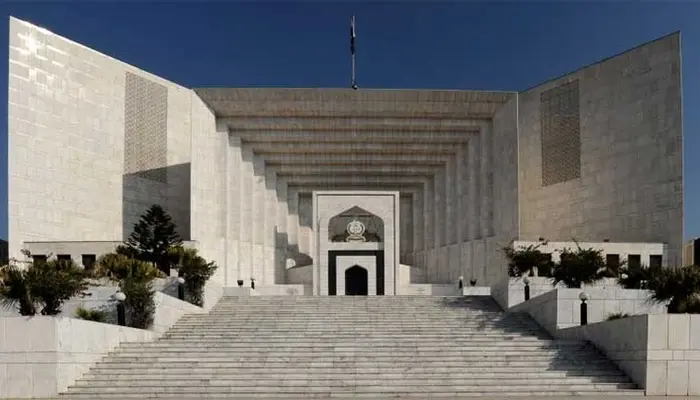Advocate Salman Akram Raja informed the Supreme Court (SC) that any amendment to the Army Act cannot abolish fundamental rights. Arguing before a seven-member bench, he represented convict Arzam Junaid in an intra-court appeal challenging the trial of civilians in military courts.
Jurisdiction of Military and Civil Law
Raja clarified that crimes committed by army officials under ordinary laws should be tried under civil law. He provided an example: if an army official violates the kite-flying ban at home in Punjab, he will face civil prosecution. Justice Jamal Khan Mandokhail asked whether the Army Act would apply if a soldier married a second wife without his first wife’s consent. Raja responded that such cases would be handled under civil law, not military jurisdiction.
Read: IMF Praises Pakistan’s Economic Reforms: Finance Minister Aurangzeb
The Army Act’s Historical Context
The counsel referred to the 1975 F.B. Ali case, where the application of Section 2 (1)(d)(1) of the Army Act was discussed. Justice Mazhar inquired why the SC should repeatedly review this section. Raja emphasized that legal changes warrant judicial reviews to uphold fundamental rights. He added that exceptions under Article 8(3) do not apply to Section 2 (1)(d)(1).
Justice Naeem Akhtar Afghan highlighted that a 1967 ordinance introduced Article 2 (1)(d)(2) into the Army Act during a time of political unrest and war. He questioned whether the ordinance became obsolete after its term expired. Raja explained that trials under the Official Secrets Act of 1923 were already in effect before 1967.
Rights vs. Military Authority
Raja stressed that fundamental rights enshrined in the Constitution cannot be arbitrarily removed. He criticized the notion that a commanding officer could demand an accused’s transfer without legal justification. Justice Mandokhail noted the disparity between civil and military punishments, emphasizing that civil servants can only be dismissed, while military personnel can be both dismissed and punished.
Military Court Trials and Spying Cases
Justice Muhammad Ali Mazhar raised concerns about the trial of spies, especially civilian employees of the Army. He asked where such trials should take place if a spy is caught. Justice Hassan Azhar Rizvi questioned the jurisdiction if a civilian provided state secrets to an enemy nation. Raja answered that trials for such crimes fall under the Official Secrets Act.
Justice Mazhar pointed out that a five-member bench had previously abolished Section 2D of the Army Act, removing military court jurisdiction over spies. Raja confirmed that civilian employees accused of espionage would still be subject to the Army Act.
Broader Implications
The hearing underscored critical questions about the balance between national security and constitutional rights. As amendments to the Army Act are scrutinized, the debate will likely shape future discussions on civil and military jurisdictions in Pakistan.
Follow us on Google News, Instagram, YouTube, Facebook,Whats App, and TikTok for latest updates
